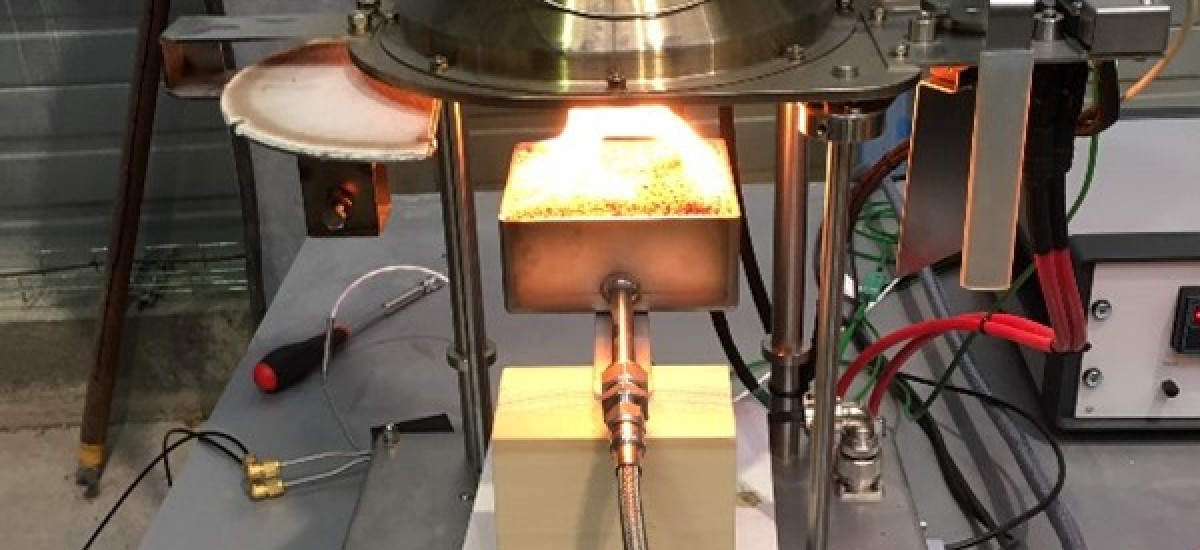22/8/2024
Efectis, Building Balance, Nieman Consulting Engineers and Peutz BV together developed a test strategy to gain in-depth insight into the fire behaviour of biobased insulation materials and the fire resistance of timber frame constructions with biobased insulation materials.
The Building Balance Foundation has been commissioned by the Dutch government to actively promote the use of biobased materials in the built environment.
The association for the carpentry industry, Nederlandse Branchevereniging voor de Timmerindustrie (NBVT), had decided to conduct joint tests to make the knowledge gained from these tests widely available in the industry. Building Balance and NBVT looked for a solution to enable the rapid implementation of biobased insulation material in timber frame construction and came into contact with Efectis.
Efectis advised Building Balance to set up an R&D test strategy to develop a long-term strategy as a basis on which to build. The aim was to bring together different parties within fire safety and develop a smart test strategy. A list was drawn up with types of elements to test and a list of seven insulating materials: paper cellulose, wood wool, grain straw, miscanthus, flax, hemp shives and hemp wool. A test strategy has been set up in close consultation between Efectis, Peutz and Niemann.
The idea behind the strategy is that instead of just testing whether something meets the standard, we also test what is happening to the underlying material. This way, we start to understand more about the materials. The tests are designed to build on what we learned in the test before it and to make cross-connections. We check the results from a previous test against the new one and learn more and more about how the materials behave. As a result, we also learn whether the various biobased materials are comparable.
Use of existing science
Based on a study conducted by TU Münich, it is assumed that biobased insulation materials such as wood fibre and cellulose have the same protection factor as glass wool. But because in the Netherlands we work with the thinnest wood sizes in Europe, we need to conduct tests specifically with Dutch wood sizes. The assumption that the new bio-based materials can also have the same protection factor as glass wool will be included in the research.
The tests are carried out by Peutz BV and Efectis. Specifically, the test strategy consists of four types of tests. The first three – the Small Flame test, the Cone-caloric test and the SBI test – provide insight into fire characteristics. The fourth test comprises the wall tests. Here, a deliberate choice was made for the first test cluster to be set up with load-bearing internal walls in order to be able to make statements about a house-separating wall if necessary.
The structure of the various tests is from small to large. In the first tests, we learn a lot about the properties of the materials, such as the calorific value at full combustion, the energy value, how fast it burns and what burn-in depth you can expect.
In the SBI tests, we examine a timber frame element with mesh in front of the insulation material instead of, say, plaster. Because the fire reaches the material directly, we find out more about how the material reacts to fire. We also place thermocouples in the specimen to measure the temperature development in the material during the test. This too provides valuable information that can be put to good use in the fire-safe application of the product.
When we then perform the full-scale tests with the complete wall assembly with cladding in front of it, we already have an idea of how that underlying material will behave and we can check it again. In this way, we collectively gain a lot of knowledge, which lays a broad foundation for the further development of the materials.
The aim of this study is to inform the market of how different insulation materials perform for the same timber frame wall. Besides providing input for further product development by manufacturers, the data can be used as input for faster and more targeted follow-up testing for product certifications. In addition, the joint research provides a wealth of information for fire safety consultants.
For more information, please contact nederland@efectis.com

